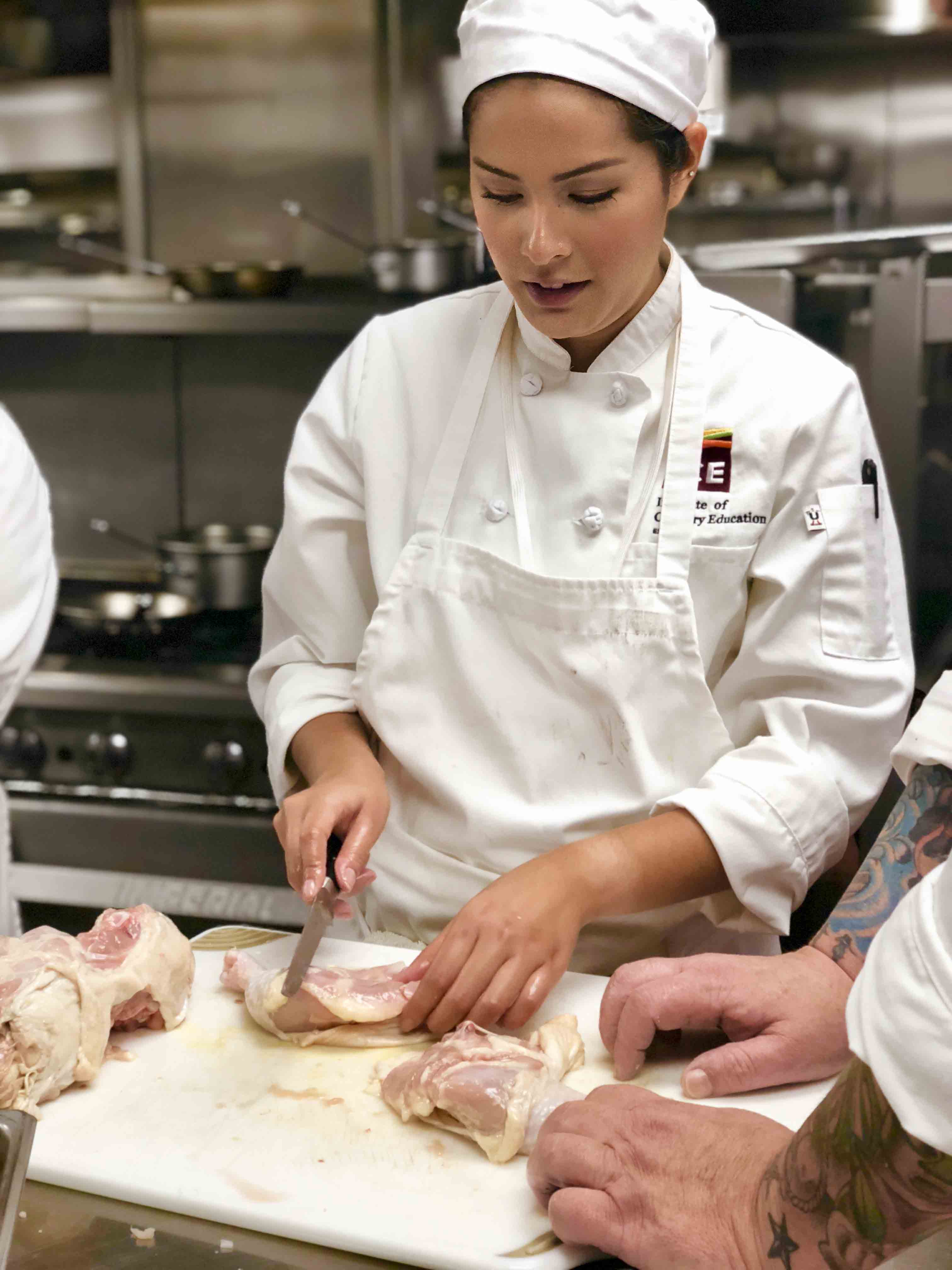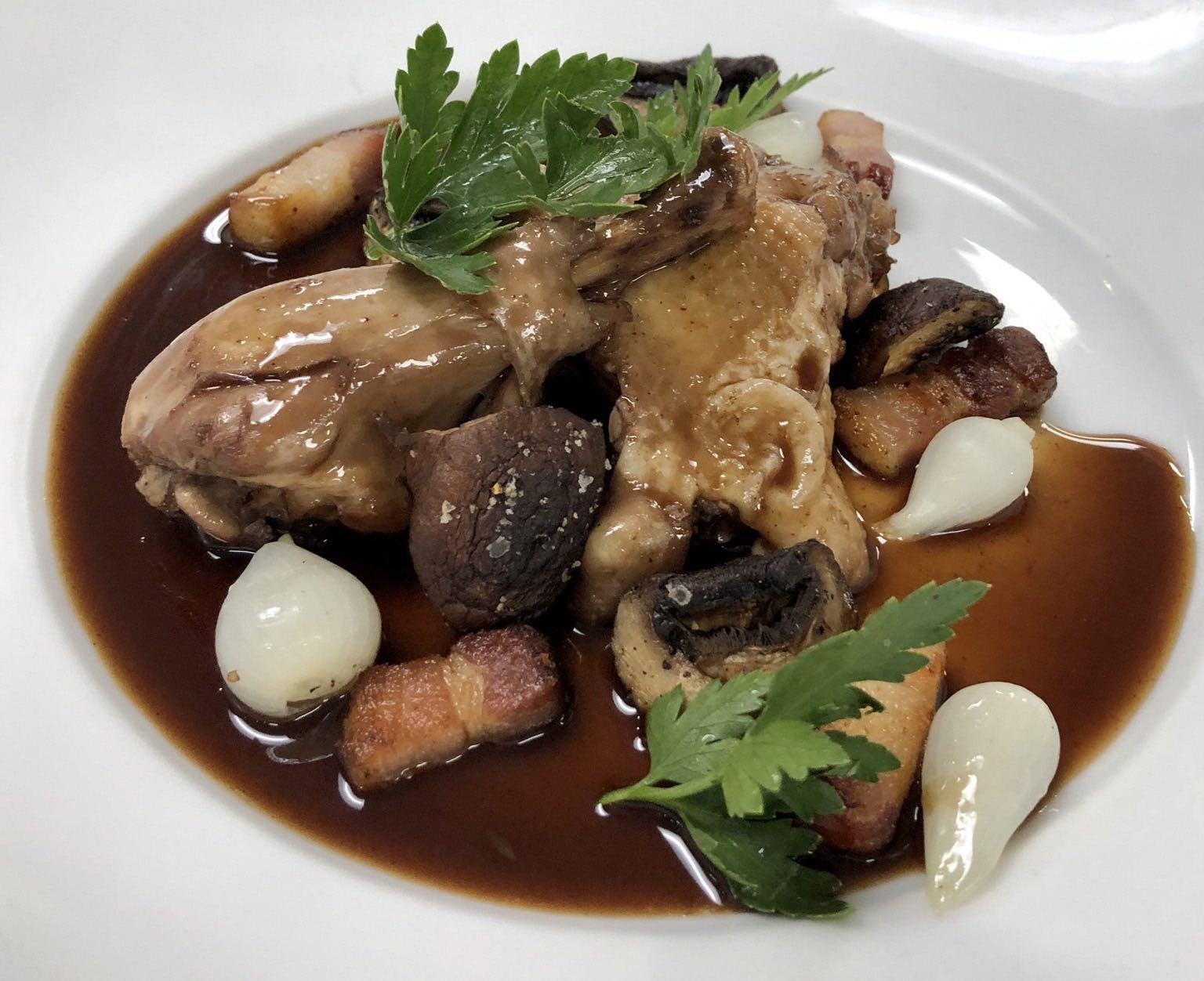I moved from South Florida to Southern California just one week before the first day of class. In the days prior, I said goodbye to my loved ones and crammed all I could fit into my SUV to embark on a cross-country road trip to my new state. After five long days of driving, I finally made it to Pasadena, California. I couldn’t believe it: I was finally going to pursue my lifelong dream of becoming a chef.
My mom is Venezuelan, my dad is Japanese and food has always been an integral part of my family’s traditions. Sundays were arepa days, filled with reina pepiada, an avocado chicken salad, or ham and cheese, and weekdays were for homemade Japanese curry. I have always been fascinated by the different cuisines that represent different cultures and found a melting pot of gastronomic diversity in Los Angeles, which is what drew me to apply to the Institute of Culinary Education.
I had only visited California a few times prior to moving here, but I’d never been to Pasadena before. Like most people, my only reference point was the Rose Bowl. Eager to find out what my future at school would be like, I took a stroll by the ICE campus when I arrived in town. As I made my way down Colorado Boulevard, I couldn’t help but notice the immense amount of diversity surrounding me – not only the people – it was evident in the variety of restaurants that line the streets of charming Old Town Pasadena, just down the street from the school.
My excitement culminated when I turned the corner onto Green Street and saw the colorful ICE logo above the door. My heart skipped a beat – maybe more – as I peered through the window to find students in their chef whites. They were so engaged, concentrated on their tasks, and moving briskly and confidently throughout the kitchen. It was awe-inspiring, and I wondered to myself, when will I be as confident?
After much patience, that I do not typically have, the day finally arrived when I was the one learning from the chef-instructors. It was clear, however, that my hands were unsure of how to hold the chef’s knife and lacked stability due to my nerves. It was as if I was in a foreign country learning a new language. I reassured myself that it was okay to be nervous – I had never been in a professional kitchen in my life; I was here to learn.

As the first few days passed, I was feeling more familiar with the kitchen environment and slightly more confident. That was until my instructor announced in his boisterous voice, “Today we are cooking coq au vin.” We all let out an immature giggle as we tried, in our best French accents, to repeat chef’s pronunciation of the dish.
A French classic of chicken braised slowly in a red wine sauce then served with lardons, mushrooms and pearl onions, the dish is as complex and difficult to prepare for me as it is to pronounce. The key to coq au vin is creating a pan-reduction sauce by deglazing the tasty brown bits, called fond, that stick to the bottom of the pan after browning your protein. In order to incorporate the fond without losing the flavor, you need some type of alcohol, and in this case we used brandy. With a couple of generous splashes, our pans all lit up one by one with a mesmerizing flame of orange fire.
To enhance the flavors, we added aromatics, including mirepoix (onions, celery and carrots), garlic and herbs that help give depth and richness to the stew. As the name (vin) translates, wine is an integral part of the dish. We added about a cup of Burgundy, topped off the pot with chicken stock until the chicken was fully submerged, then cooked it at 350 degrees for about 45 minutes. The stew was coming to life and the aromas were intoxicating.
When we drizzled a reduced wine-based sauce over the chicken and carefully plated the dish with lardons, sauteed mushrooms and tender pearl onions, I experienced a true epiphany – I had successfully created a complex, French dish with the level of ease and comfort I had once observed only from outside the window of the cooking lab. I felt officially inducted as a student and culinary professional. Though I still cannot perfectly pronounce coq au vin, I am learning to speak the universal culinary language through my studies at ICE.

Explore your lifelong dreams with ICE's Los Angeles career programs.




